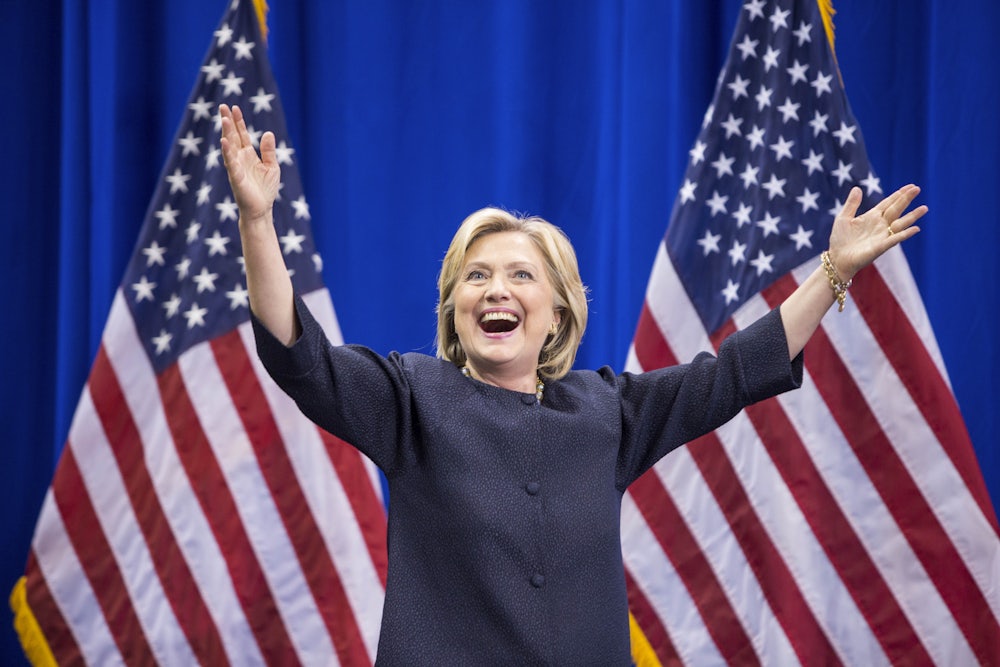Next to national security, financial reform is Clinton’s most vulnerable issue among liberal primary voters. Her husband repealed parts of the Glass-Steagall Act. Clintonland is populated by the likes of Robert Rubin. And Hillary herself has made enormous amounts of money in paid speeches to Goldman Sachs and others. The world of high finance is her milieu, its rarefied air the stuff she breathes.
Clinton has taken to The New York Times op-ed page in a probably futile attempt to lay those doubts to rest. The spoiler is that she doesn’t go as far as her primary opponents, who have both called for breaking up the big banks. But she does promise to strengthen many of the reforms in the 2010 Dodd-Frank Act, in a bid to further discourage risk-taking, limit proprietary trading, shine a regulatory light on the shadow banking sector, and hold Wall Street executives accountable.
Few of her reforms, of course, will likely be enacted if she is president, given that it is almost certain that Republicans will hold on to at least one chamber of Congress. That is why her first argument for financial reform, coming before any of her proposals, is a defensive one: the veto power she will wield to prevent Republicans from rolling back Dodd-Frank. Clinton’s implicit argument, which is threaded throughout her campaign, is that she’s the only Democrat who can stop a wholesale unwinding of the Obama era.
